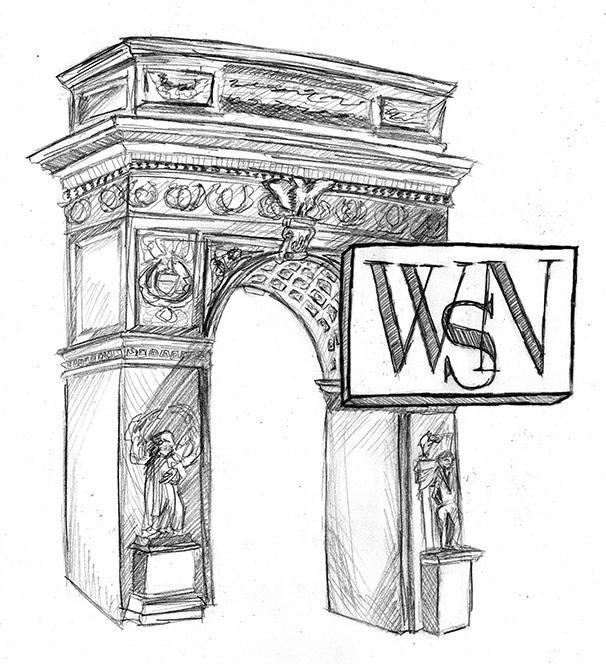As our semester comes to a close, the WSN Editorial Board would like to take the time to reflect on some of the most pivotal issues that have influenced campus life and encouraged student activism during the past few months, whether campus-wide, national or international. Though this certainly isn’t a round-up of every issue that has shaken the NYU community this semester, from the perspective of the Opinion Desk, these are important topics we feel a certain duty to continue a public conversation around.
Dr. Christine Blasey Ford and Justice Brett Kavanaugh
The Supreme Court nomination of Brett Kavanaugh and its impact on the NYU community was covered extensively by this publication. WSN felt compelled to not only give a platform to the voices inspired by Blasey Ford, but also to acknowledge the complexity of the issue of sexual harassment. Graduate student Monica Luna wrote a powerful open letter to Blasey Ford based on her personal experiences enduring backlash for coming forward with sexual assault allegations. Contributing writer Max Gordon wrote on his concerns with the #MeToo movement as a result of these allegations coming forward. Deputy Opinion Editor Hanna Khosravi also wrote a thank-you letter to Blasey Ford from our Editorial Board recognizing her bravery in testifying before the entire country despite a circus of malicious criticism.
Milo Yiannopoulos
The NYU campus became embroiled in the controversy regarding Milo Yiannopoulos when LS Professor Michael Rectenwald invited the hate-enticing conservative commentator to one of his classes. Groups on campus immediately rallied against the announcement of Yiannopoulos’ visit to NYU, and the postponing of the event due to public safety concerns raised by New York City Mayor Bill de Blasio. WSN’s coverage of the firestorm surrounding Yiannopoulos ranged from student perspectives on campus free speech to our Editorial Board’s own reflections on how to responsibly inform our student body about Yiannopoulos without further amplifying his hateful rhetoric.
Israel-Palestine Conflict on Campus
Student senators announced the proposal of a resolution last month directing NYU to cut all ties with companies affiliated with Israel as called for by the Boycott, Divestment and Sanctions movement. Tensions between pro-Israel and pro-Palestine groups on campus seemed to manifest in the intentional placement of an Israeli flag over a Palestinian flag in a Kimmel Center for Student Life window while Meor was tabling outside at the same time, and the flag was placed behind their table. Students representing both support and opposition to the BDS movement vocalized their stances in WSN.
Board of Trustees and Student Advocacy
Earlier this year, the NYU Board of Trustees rejected three University Senate-approved resolutions calling for student and faculty representation on the board, instead responding with concessions promising to facilitate communication through regular meetings with the Senate. The NYU Student Labor Action Movement has adamantly advocated and organized for increased representation in the university administration, and despite the vocal student response to the rejection of the solutions, the board declined WSN’s request to speak with any board members about the controversy.
Jamal Khashoggi and NYU’s Abu Dhabi Problem
Jamal Khashoggi’s death at the hands of the Saudi government increased international scrutiny of Saudi Arabia and its allies, including the United Arab Emirates. As human rights violations and media censorship in the region come more clearly into focus for the larger public, we should consider NYU’s stake in the UAE through the form of a degree-granting campus in Abu Dhabi. We must be wary of NYU’s precarious positioning and hesitation in responding to recent events. Following British academic Matthew Hedges’s arrest and life sentence on account of espionage in the UAE, we must also be wary of the safety of our students. Since the trajectory implies that the tensions will only rise, we have to consider how to hold NYU leadership accountable.
Being@NYU, Food Insecurity and Mental Health
With the release of the Being@NYU survey results this semester, issues of belonging, mental health and food insecurity emerged as areas requiring immediate attention. In fact, while 80.6 percent of survey respondents reported feeling either “comfortable” or “very comfortable” with the campus climate, 33 percent of undergraduate students responded that they had considered leaving NYU in the past year. 63.2 percent of those students reported to have felt this way because of a lack of belonging. Also this semester, with WSN’s reporting on the courtesy meal plan and a recent town hall, food insecurity has finally become a topic of public discourse. It is clear that a significant number of NYU students struggle financially, and the university should continue doing its part to help.
At the WSN Editorial Board, we thoroughly believe that these issues are not confined by academic terms, and that our goal to provide the student body with the utmost transparency on these issues should not be tethered to the timeline of a news cycle. We carefully choose our editorials based on the issues which we believe are the most crucial to our campus, and we have been encouraged to see the strength of student voices both on a campus-wide and on a national scale. We have continuously been emboldened by our active student body, and we stand by our choice and our responsibility to hold those in power accountable.
Opinions expressed on the editorial pages are not necessarily those of WSN, and our publication of opinions is not an endorsement of them.
A version of this article appeared in the Monday, Dec. 3 print edition. Email the WSN Editorial Board at [email protected].


























































































































































